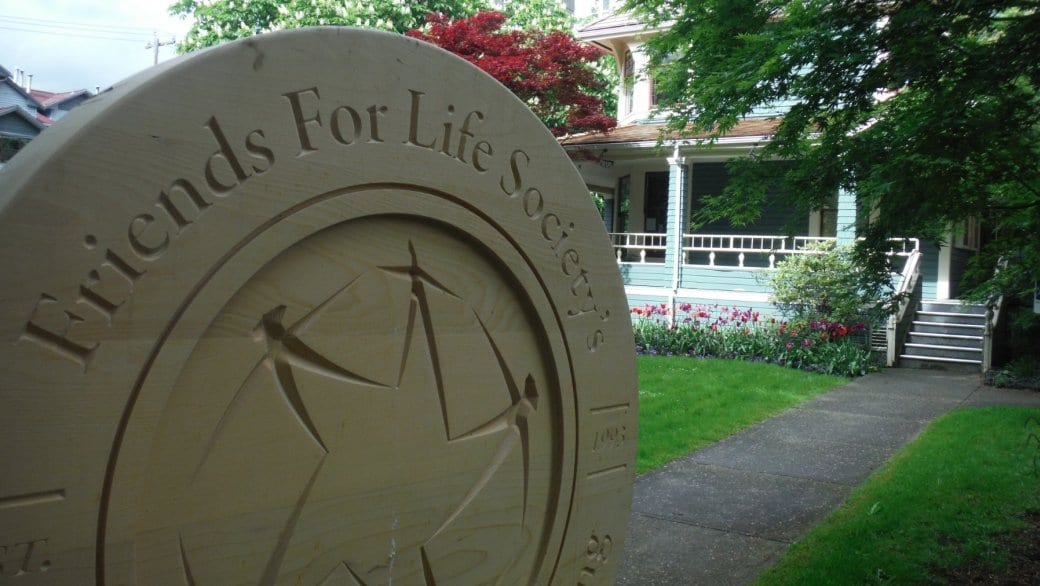Friends For Life is asking for the community’s support and patience as it re-assesses its funding model and mandate, says Paul Gravett, who describes himself as a consultant brought in to assist with the organization’s re-envisioning and re-establishment.
After more than two decades of serving people primarily with HIV/AIDS, Friends For Life suspended its regular operations in March 2016, due to problems around its fundraising, programs and meal services.
Board president Paula Parker says Gravett is now the only employee at Friends For Life, down from two full-time and one part-time employee prior to the suspension.
“The world has changed around us and, truthfully, Friends For Life has not been able to keep pace,” the board of directors told Daily Xtra in an emailed statement on March 23, 2016.
“This is our time to take stock, to get ahead of the problems and to develop a new approach to programs and services,” the board says.
“It’s been a really difficult struggle for everyone,” Gravett tells Daily Xtra.
The organization is now offering some interim services, such as dental care, naturopathic support, counseling, massage, acupuncture, food services and drop-ins, provided by trained clinicians, supervised practicum students and volunteers.
Gravett says he has received a positive response from the interim services’ recipients. The volunteers “all get gold stars,” he says. “They’re signed up well into the future.”
Parker says the house Friends For Life operates is now open two days a week, and will soon be open three days a week.
“More than ever, this is a time when we need our friends to stand by us and to lend us a helping hand,” the board says in its statement.

(Friends For Life president Paula Parker, above, invited community members to discuss the organization’s future with the board on April 23, 2016./Jeremy Hainsworth photo.)
Attendees at two public sessions the board held on April 23 to discuss the organization’s future, finances and its connection to the community, told Parker Friends For Life needs to increase its community profile so people better understand what services they offer.
Gravett says Friends For Life may return to its initial mandate of assisting people with all sorts of life-threatening illnesses, rather than primarily focusing on HIV/AIDS.
He says there’s a perception the organization only assists people with HIV/AIDS. “That is certainly not true,” he says, though he acknowledges HIV has been the focus.
“The organization has not been good at visibly helping people living with other life-threatening illnesses,” he says.
Parker says Friends For Life doesn’t need to know what illness people have, only how they can help.
What’s needed, Gravett says, is a dialogue with the community about what services Friends For Life should focus on providing.
It’s not about de-gaying the mandate, he stresses. “There’s no conversation around that at all.”
Asked if any board members have resigned, Gravett confirms three directors have resigned in 2016.
He says one left in February, and two more have left in the past few weeks.
One went back to school, he says, but he couldn’t say why the other two left. “I wasn’t part of that conversation,” he says.
“These people are volunteers,” he says. “This is rough on everyone. I’ve sat at the board table and there were tears. The emotions are on the surface.”
Asked if there has been any strife on the board, Gravett says, “I’m not aware of it. Certainly, as the board is constituted, it is very collegial. It’s been a very collaborative effort.”

(The Friends For Life house, at 1459 Barclay St in Vancouver’s West End, is now open two days per week and soon to be open three days per week, board president Paula Parker says./Jeremy Hainsworth photo)
Financially, Gravett says, Friends For Life may have to move away from the not-for-profit model, perhaps to a social enterprise model operating more like a business.
He says popular fundraisers such as Dining Out For Life and Art For Life may have reached the end of their usefulness.
Art For Life lost its connection to the community, he suggests. “It had not evolved.”
As Friends For Life’s fundraising became less efficient and the costs of providing services rose, the organization found itself increasingly burdened, he says.
Under a social enterprise model, Friends For Life could perhaps set up a catering service, the profits of which would support community services. That’s just one possible idea, he says. “Everything needs to be explored.”
Gravett doesn’t know how long the reorganization process might take.
As for the money raised by this year’s Dining Out For Life, Gravett says those proceeds are being held for future use.
Dining Out For Life saw restaurants across the Lower Mainland contribute 25 percent of their March 10, 2016, food sales to Friends For Life and to A Loving Spoonful, which provides free, nutritious meals to people living with HIV/AIDS in the Vancouver area.
Money raised at Bingo For Life, still held weekly at Celebrities, is going towards Friends For Life’s continued operations, Gravett says.

 Why you can trust Xtra
Why you can trust Xtra


